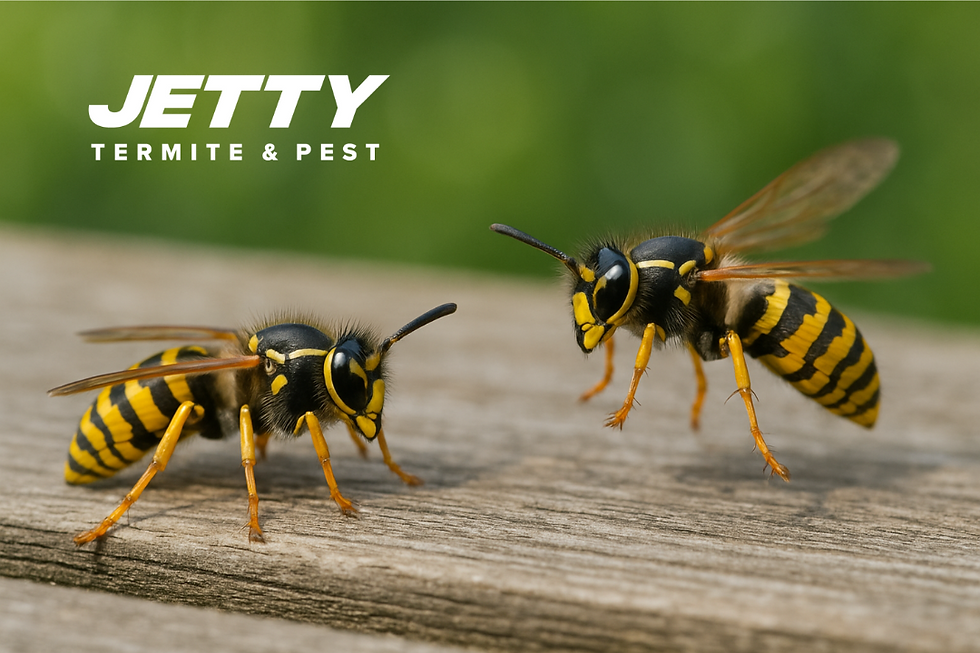How to Maintain a Pest-Free Facility: Best Practices for Food Safety Audits
- Jetty Pest

- Apr 4, 2025
- 2 min read

In the food processing industry, maintaining a pest-free environment is critical to ensuring product safety, regulatory compliance, and customer confidence. A single pest sighting can lead to contamination, costly recalls, and failed inspections. At Jetty Termite & Pest Control, we understand the high stakes involved and are here to help food processing plants implement effective pest management strategies. Here’s how you can keep your facility pest-free and pass food safety audits with ease.
1. Implement a Comprehensive Integrated Pest Management (IPM) Plan
Integrated Pest Management (IPM) is a proactive approach that focuses on long-term pest prevention through sanitation, monitoring, and exclusion techniques. Your IPM plan should include:
Regular inspections to identify and address potential pest entry points.
Proper documentation of pest activity and control measures taken.
Training staff on best practices for maintaining a pest-free environment.
2. Keep Your Facility Clean and Well-Maintained
Sanitation is the first line of defense against pests. Food residue, spills, and waste attract insects and rodents, so it’s essential to:
Establish a strict cleaning schedule for all areas, especially food storage and production zones.
Ensure proper waste disposal by keeping trash bins sealed and emptied regularly.
Eliminate moisture buildup by fixing leaks and improving drainage systems.
3. Seal Entry Points and Maintain Structural Integrity
Pests can squeeze through the smallest gaps, making facility maintenance a crucial part of pest control. Regularly inspect and repair:
Doors and windows, ensuring they are tightly sealed.
Cracks and gaps in walls, floors, and ceilings.
Loading docks and vents, using mesh screens or barriers to prevent entry.
4. Monitor for Pest Activity with Regular Inspections
Routine monitoring helps detect pest problems before they escalate. Key monitoring practices include:
Installing traps and monitoring devices in critical areas.
Using pheromone traps to detect early signs of insect infestations.
Reviewing pest control logs to track patterns and adjust strategies accordingly.
5. Work with a Professional Pest Control Provider
Partnering with a licensed pest control company like Jetty Termite & Pest Control ensures that your facility remains compliant with food safety standards. Our experts provide:
Comprehensive inspections tailored to food processing environments.
Effective and safe treatment plans that meet regulatory requirements.
Ongoing support and recommendations to prevent future infestations.
6. Prepare for Food Safety Audits
To pass audits with confidence, maintain thorough records of your pest control efforts, including:
Detailed service reports from your pest management provider.
Sanitation and maintenance logs documenting daily, weekly, and monthly tasks.
Employee training records proving adherence to pest prevention protocols.
Conclusion
Food safety audits can be stressful, but with the right pest control measures in place, you can ensure a clean and compliant facility. At Jetty Termite & Pest Control, we specialize in helping food processing plants maintain pest-free environments through proactive solutions. Contact us today for a customized pest management plan and pass your next audit with confidence!






